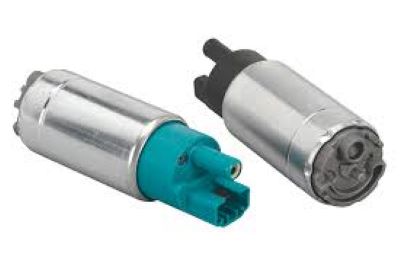Several factors must be considered when selecting a fuel pump for heavy-duty applications. It should fulfil the fuel delivery requirements of bigger engines, which generally is high fuel flow. Heavy-duty trucks or industrial machinery, on the other hand, equipped engines with power outputs over 400 horsepower will often require a fuel pump capable of serving our more than 200 liters per hour (LPH). Failure to correctly size a pump for the fuel flow required will mean that engine performance is compromised or even worse, it has an enforced stop which causes costly downtime.
The fuel pump must be matched to the engine and requires specific specifications such as the pressure rating, flow rate, etc. A pump that goes to at least 60 PSI is usually required for heavy-duty applications to keep the engine running best. Heavy-duty engine manufacturers from Caterpillar to Cummins have long focused on the need for accurate fuel pressure so engines burn all of each diesel's extracted energy, use less fuel and meet emissions targets. If the pump cannot maintain enough pressure, it will result in higher emissions and lesser fuel economy and low-efficiency operation of machinery.
As Elon Musk said at some point, "The first step is to establish that something is possible; then probability will occur. Choose your fuel pump as you choose hardcore work. Satisfying that need is critical for numerous long operational cycles in the life of the pump. Diesel fuel pumps in commercial vehicles often have to run for long periods at a time, and as such need to be more robust than those found in passenger vehicles. Numerous costs savings, including lower replacement needs many high-quality pumps are built to last 200K miles or 10K hours of use. This durability results in reduced operating costs, that is to say maintenance needs very scarce and therefore more profits for companies using these devices.

Heavy-duty applications often consume far more fuel than light passenger vehicles, so fuel efficiency is also a significant factor to consider even at off-peak engine speed or load conditions. One of the most effective ways to boost fuel economy is to provide a high-performance fuel pump that delivers an accurate amount of fuel for injection into the engine. That gets paid for very quickly, as a matched pump could save 10% of the lifetime fuel use over an engine operation, which can mean thousands of dollars in fuel costs for long-haul trucking companies or construction firms.
It is also worthwhile to take the operating conditions and evironment in which the fuel pump will operate. The reason being that some heavy-duty applications are working in extremely harsh environment like high low temperatures, dirt vibrations etc. Opting for a pump constructed from materials like stainless steel or high-grade aluminum can also help increase overall lifespan as these tend to resist wear and corrosion. A properly designed pump for coping with these conditions can last much longer, decreasing the risk of unexpected failures and minimizing downtime in operating costly heavy machinery.
In sum when choosing a fuel pump for heavy duty applications be sure that the performance of the pump will match the engine, it is robust enough to cope with long running hours and able to withstand environmental conditions. To gain more insights about selecting suitable fuel pump visit Fuel Pump.